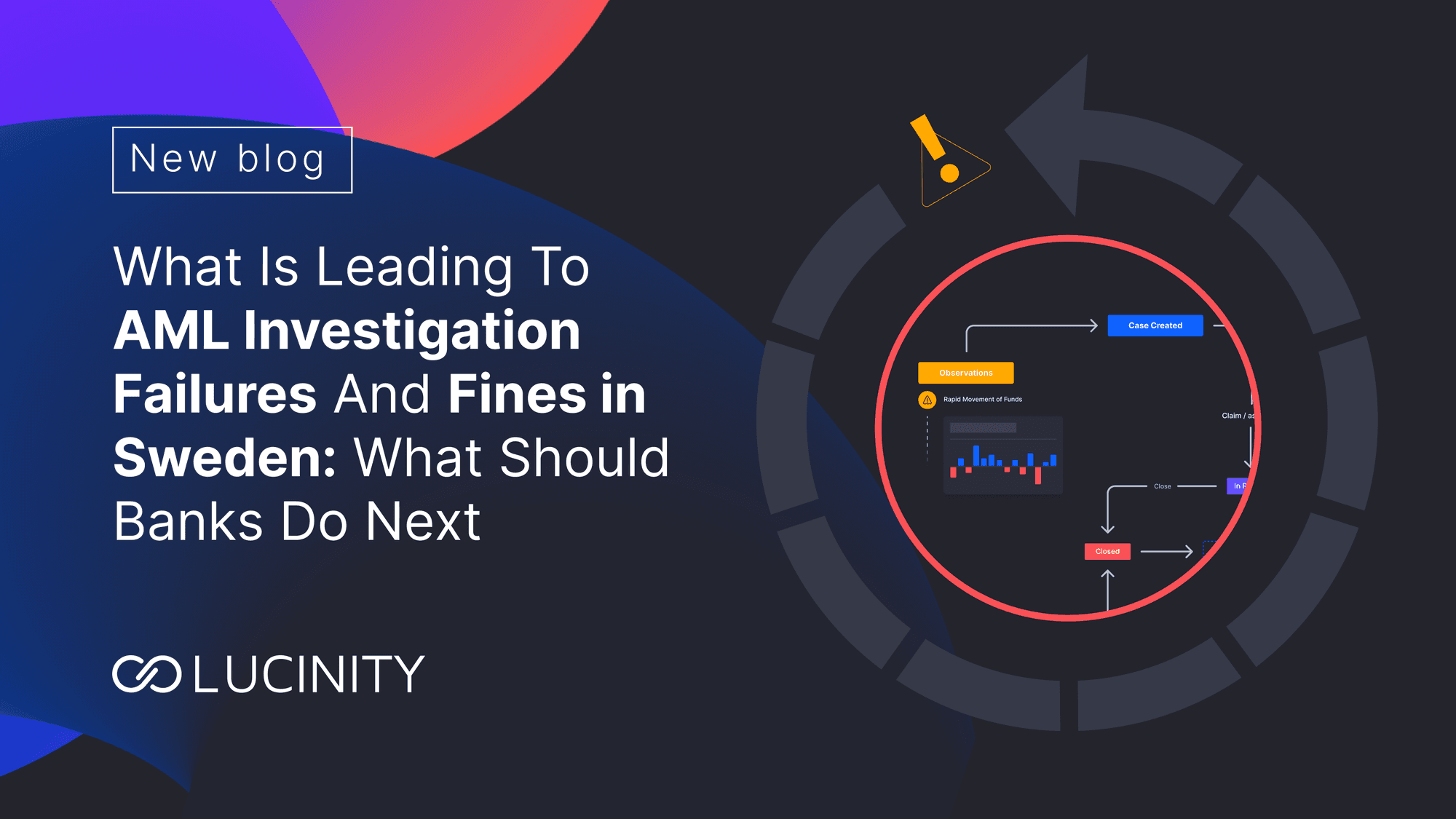Lucinity Featured in The Paypers
From stopping human trafficking to dealing with artificial intelligence, Lucinity highlights four areas where the financial crime system could use major improvements.
Have you ever been given a ‘needs improvement’ grade at school or work? It’s like a wake-up call that reminds us to step up our game and do better. Well, just like in school, the financial crime prevention industry can also hit roadblocks requiring serious attention.
In a recent article written for The Paypers, Lucinity's Financial Crime and Regulatory Transformation SME, Francisco Mainez, highlights four areas in the financial crime prevention industry that need improvement.
1. Human trafficking and money laundering
The article discusses how women are disproportionately impacted by human trafficking and are targeted for longer periods, serving as recruiters or coaches due to their perceived trustworthiness. Finances of trafficked individuals are often controlled by others, making it challenging to detect money laundering.
By analyzing spending patterns and money sources, identifying victims and traffickers may be possible. Francisco delves into the role that women play in fighting financial crime, and the collaboration required across various sectors to combat money laundering and support women's safety and freedom.
2. Artificial Intelligence and the Bunq ruling
Lucinity also shares its perspective on the Bunq vs. DNB case. Dutch challenger bank Bunq has won a court ruling that paves the way for financial services providers to employ advanced AML tools and practices. The Dutch Central Bank (DNB) had previously denied Bunq permission to use Machine Learning and Artificial Intelligence (ML&AI) for AML monitoring. However, following a legal challenge by Bunq, the recent court ruling states that DNB cannot force banks to use manual processes.
The recent developments in AI and machine learning offer faster and smarter AML software that the financial services industry can leverage to become more efficient, streamline costs, and improve investigation.
3. Right of privacy vs. the right of transparency
Furthermore, we explore how the UK's Economic Crime (Transparency and Enforcement) Act, which came into force in March 2022, will increase transparency in financial crime. Transparency International has expressed concerns about the ruling, but the new UK law demonstrates a commitment to combat financial crime through greater transparency and regulation.
4. Fighting cross-border financial crime through data sharing
Finally, the article delves into the lack of data sharing among financial institutions and countries that is hampering the detection of money laundering activities, hindering law enforcement efforts. Despite technological advancements that allow secure data transfer through encryption, cooperation in this area is scarce.
Read the full article here:







